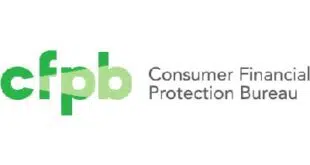U.S. Sen. Richard Durbin on Thursday asked MasterCard Inc. to explain an obscure fee with a clunky name that the senator believes penalizes MasterCard issuers when merchants exercise their transaction-routing rights under the Durbin Amendment with MasterCard debit card purchases. But MasterCard says issuers benefit whenever its cards are used, and the fee “has no impact” on merchants’ routing choices.
The letter comes just a day after the Illinois Democrat praised Visa Inc. for canceling a fee that would have penalized card issuers that had seen decreases in their Visa volume or had notified Visa that they planned to convert their portfolios to another network, in all likelihood MasterCard. Durbin openly criticized the Visa fee, saying it would hurt small banks and credit unions, but Visa said it canceled it before Durbin made it public.
Now, in a letter to MasterCard chief executive Ajay Banga, Durbin is asking for details about the No. 2 network’s so-called Domestic Other Non-MasterCard Processed Purchase Volume Fee. The fee is not new, but MasterCard recently indicated it would be increased to 3 basis points.
“This fee … apparently assesses a charge of 3 basis points when a purchase initiated with a MasterCard-branded card is transacted over another card network that is also enabled on the card,” Durbin’s letter says. “Similar to Visa’s fee, this MasterCard fee appears to impose a significant penalty on card issuers that try to shift business from MasterCard to a competing card network or that see their business shifted to competing networks through market forces or through merchant routing choice.”
Durbin did not specifically mention it in his letter, but his Durbin Amendment to the 2010 Dodd-Frank Act requires that debit card issuers give merchants routing choices of unaffiliated networks with each debit transaction. The typical issuer solution under the Federal Reserve’s so-called Regulation II, which implements the amendment, is to offer access to either the Visa or MasterCard network for signature debit transactions, and an unaffiliated electronic funds transfer network for PIN debit. Durbin’s intent was to stimulate network competition and potentially lower merchants’ card-acceptance costs.
If Durbin’s description is correct, MasterCard is charging issuers when merchants, or merchant acquirers acting on their behalf, exercise the routing rights afforded them under the Durbin Amendment, thus diverting transactions from MasterCard’s network.
“This raises troubling questions about the fee’s impact on network competition and the burdens the fee creates for small banks and credit unions as well as merchants and consumers,” the senator’s letter says. “I am interested to know more about MasterCard’s fee and whether MasterCard intends to make any changes with respect to this fee.”
MasterCard, in a statement emailed to Digital Transactions News, said it is reviewing the letter.
“It’s important to clarify the item in question,” the statement says. “It’s a program we’ve had in place with card issuers that helps ensure we provide our cardholders with the value and benefits of their MasterCard card, even when we don’t process the transaction. This has no impact on merchants’ choice on how they route a transaction.”
Durbin’s letter asks Banga several questions about the fee, including whether issuers can negotiate or contest it, and how MasterCard will ensure that issuers do not interfere with “competitive choices on debit transactions.” He also asks, in light of Visa’s recent fee cancellation, if MasterCard is “considering changing or canceling the Domestic Other Non-MasterCard Processed Purchase Volume fee.”





